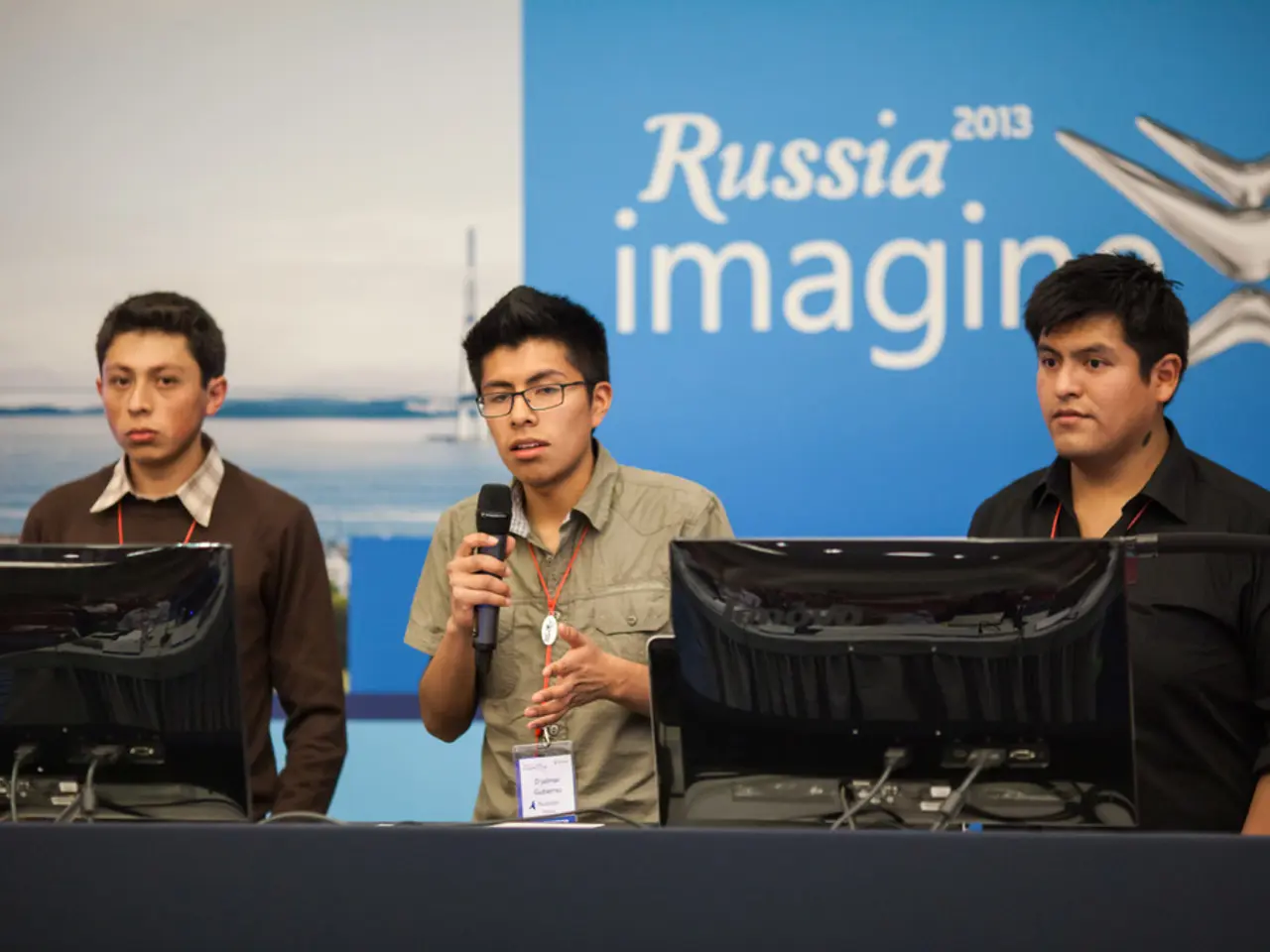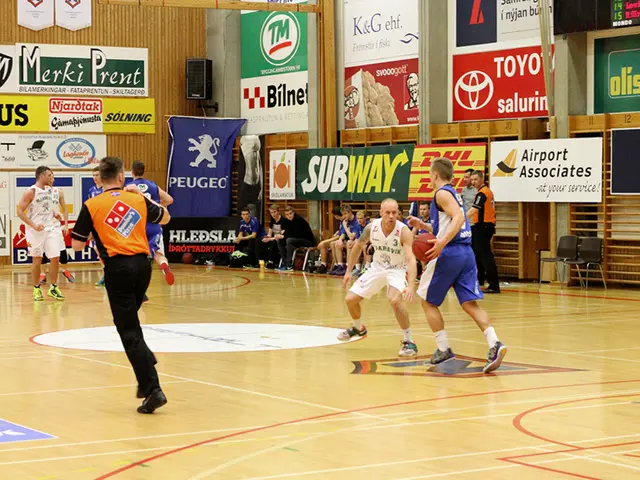U.S. and European leaders' encounter with the Lithuanian president's advisor yields encouraging outcomes.
In a significant development, leaders from the United States, Ukraine, and several European countries met in Washington D.C. to discuss security guarantees for Ukraine. The meeting, which took place on Monday, was attended by the presidents of Britain, France, Germany, Italy, Finland, NATO chief Mark Rutte, and European Commission chief Ursula von der Leyen, among others.
According to reports, Russian President Vladimir Putin expressed his readiness to meet Ukrainian President Zelensky during a telephone call, a potential first face-to-face since Moscow's invasion nearly three and a half years ago. The circumstances in which the meeting with Putin will take place will determine its purpose.
The security guarantees discussed during the meeting center on alternatives to Ukraine's full NATO membership, which remains off the table in the near term. The focus is on interim and multilateral military support mechanisms, blending training, arms provision, and limited coalition forces presence to bolster Ukraine’s defense without formal alliance commitments at this point.
Key details include the exploration of a “European reassurance force” concept, aiming to provide a military presence or deterrent capability in Ukraine without full NATO membership. However, this reassurance force has been criticized as potentially offering mainly a symbolic guarantee with limited actual defense power.
NATO unveiled a “bridge to membership” support and training mission at the July 2024 summit, designed to enhance the interoperability of Ukrainian forces with the alliance, preparing them for possible future membership though without immediate security guarantees. Under US-led Ukraine Defense Contact Group, groups of countries coordinate the provision of weapons and deterrent capabilities to Ukraine, supplementing its defense capacity outside formal alliance commitments.
By July 2024, Ukraine had signed security-related bilateral agreements with 20 countries plus the European Union, which represent additional forms of political and military support though these do not equate to collective defense guarantees.
Lithuanian President's chief foreign policy advisor, Asta Skaisgiryte, has stated that the results of the meeting are promising. She believes a truce is necessary to start talks and demonstrate the intention to end the war. However, it's too early to say if the talks will lead to ending the war, as they are still in the early stages.
Skaisgiryte also believes that President Trump's actions were a tactical maneuver to act as a mediator between Russia and Ukraine. The European Union countries and NATO's European partners wanted the Europeans to be invited to Washington, and this has been done.
In a break from White House talks with European leaders, Putin reportedly called Trump during the meeting with Zelensky. The meeting in Washington, D.C. marks a significant step towards finding a resolution to the ongoing conflict in Ukraine. As negotiations continue, the international community will closely watch the developments and hope for a peaceful resolution.
[1] NATO's Ukraine plan: Interim security arrangements
[2] Ukraine signs security pact with 20 countries
Read also:
- United States tariffs pose a threat to India, necessitating the recruitment of adept negotiators or strategists, similar to those who had influenced Trump's decisions.
- Weekly happenings in the German Federal Parliament (Bundestag)
- Southwest region's most popular posts, accompanied by an inquiry:
- Discussion between Putin and Trump in Alaska could potentially overshadow Ukraine's concerns








